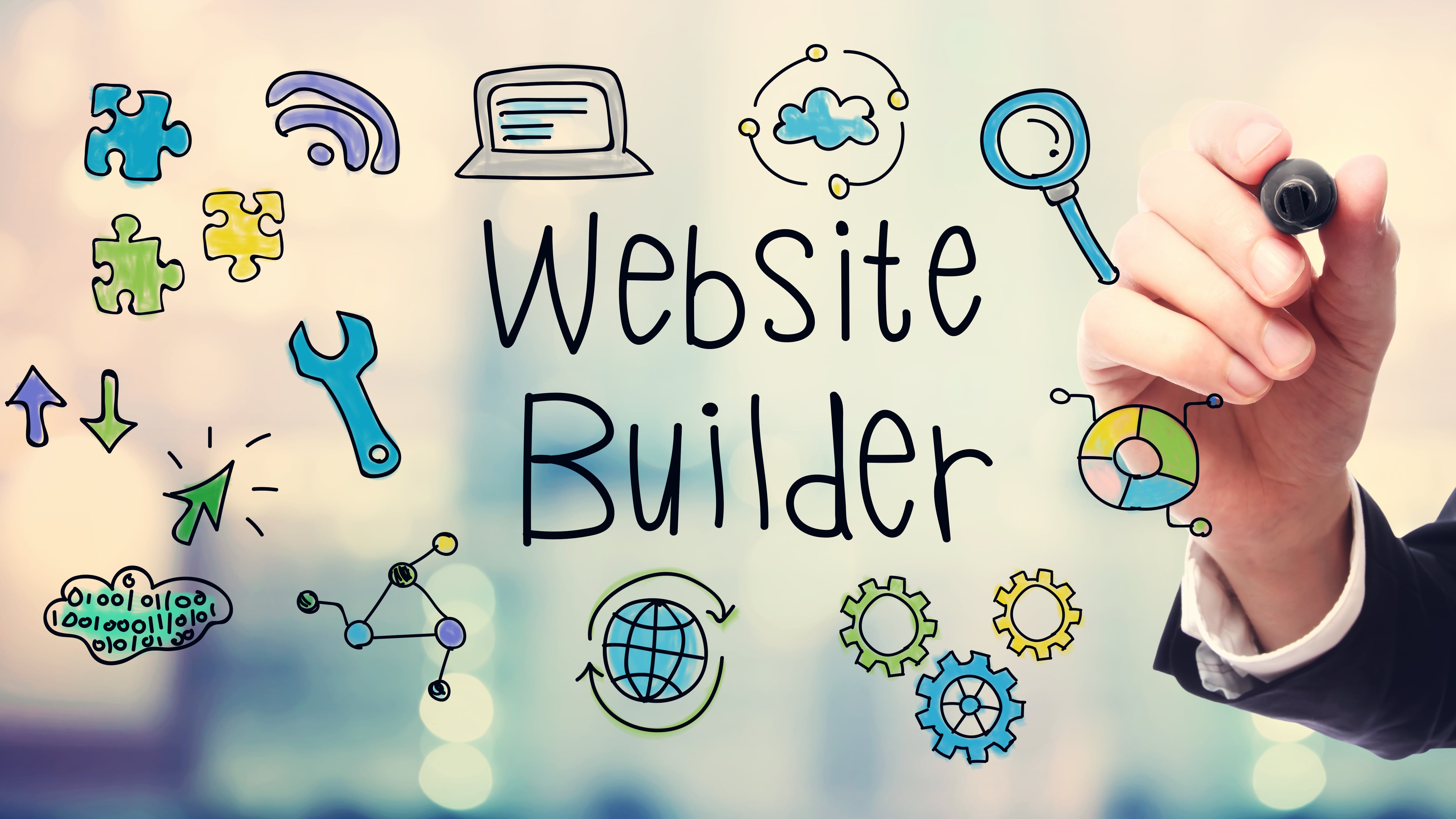Website builder vs web hosting: What's the difference?
Let’s sort out what these tools are and which one you could go without

Sign up for breaking news, reviews, opinion, top tech deals, and more.
You are now subscribed
Your newsletter sign-up was successful
In the most simple terms web hosting and website builders are both like renting a shop. With web hosting you're renting an empty shell and you get flexibility to choose what you put in it. With a website builder you're renting the shop plus the shelves, shopping carts, till, lighting, and fridges and freezers. There is still choice, you're just limited by what the leaseholder says is OK to put in it.
Both have their benefits and drawbacks. For web hosting, you have a lot more flexibility and it can be cheaper. If you decide to move your store you can pack up all your things and easily move elsewhere. With website builders, you cannot just pack up and leave with your stuff and monthly payments can be larger because you're renting not only the store but the stuff in it too.
Enjoy a range of Ultahost discounts
TechRadar Pro readers can enjoy a 15% discount on their first bill for all annual plans by using the exclusive promo code TRULTA15. Additional discounts can be found with promo codes TRULTA25 and TRULTA45.
That's not to say website builders don't have their benefits. For a start, it's easier to set your shop up because everything is easily integrated and ready to go. Also, you get the luxury of not having to deal with the maintenance of your stuff.
This is a very simple analogy. In fact, there are web hosting providers that restrict what you can put in a store and web hosting providers that will manage your shop for you. There are also website builders that are cheaper overall to set up and run a site. Which one to use is all down to the type of website you want to create, your experience level, and how much time you have to invest in your site.
Clearly, it isn't black and white. We have created this guide to better explain the differences, positives, and negatives when it comes to web hosting and website builders.

What is a website builder?
In the old days building a site meant learning how to code, having web designer skills, and pouring plenty of time and energy into your online project. Now, it’s a totally different story, and fortunately so.
The number one tool that makes building beautiful sites within everyone’s reach is a website builder. It’s a software solution created for creating all sorts of sites (to put it simply) and it requires no technical know-how. On the contrary, you can have a fully-functional site up and running within hours, or potentially minutes if you are using one of the best AI website builders.
A website builder is an online platform that allows you to create a website without needing to write any code. Website builders typically use a drag-and-drop interface, which makes it easy for you to add and edit content, images, and other elements on your website. Website builders also provide you with a range of templates and themes, which can be customized to suit your brand or business.
Sign up to the TechRadar Pro newsletter to get all the top news, opinion, features and guidance your business needs to succeed!
Alternatively, AI website builders can also help you create a site without having to drag-and-drop or select a template. These typically work by asking you a few simple questions and then letting the AI does the work for you producing a complete site - although you will typically need to make some edits to make it fully fit for purpose.
Some website builders offer additional features such as ecommerce capabilities, blog creation, and social media integration. With a website builder, you can create a professional-looking website quickly and easily, without requiring any technical expertise.
The main advantage of using a site builder is the built-in simplicity and swiftness of creating a site with it. Also, most site builds are budget-friendly, so there’s no need to worry about blowing your budget anytime soon.
Limited choice has often been cited as a downside of using a website. However, the best website builder platforms now offer a fantastic level of flexibility with plenty of tools to help you achieve the website you want. This is especially true with AI website builder, which allow for a much greater level of customization without the need to code.
However, if you want total control, opting for a web host and custom coding your website is the only choice.

What is web hosting?
A website builder is an end-to-end solution for owning and managing a website. You get the domain, a page builder, hosting, and server management all in one.
Web hosting can be exactly the same. For lots of web hosting plans you get all of these things bundled in with your hosting package. The difference is, you have the option to choose each of these features.
Web hosting is all about fine-grained control over your website. This can save you money and get you better performance but that added control puts an extra level responsibility on you.
Depending on what hosting you choose, that extra management can be minimal. For example, if you choose a shared hosting plan from Hostinger, you don't have to manage hardly anything at all. VPS plans can come with a lot more responsibility but you can also opt to pay for full management which resolves you of responsibility too.
There are different types of web hosting which makes the answer to what is web hosting a little more complex but essentially web hosting is renting a remote computer on which your website is stored and accessed by your visitors.
Similarities and differences
Similarities
Both are essential for creating a website: Website builders are used to create the design and layout of a website, while web hosting provides the server space to store and serve the website content.
Both are available as online services: Website builders and web hosting services are both available online, and you can access them from anywhere in the world.
Both offer different pricing plans: Both website builders and web hosting services offer different pricing plans to suit the needs of different websites.
Differences
The main difference is control. With a website builder everything is locked-in. This creates convenience and simplicity but comes at the cost of not having full control over your website and you need to pay more for the website builder to manage everything for you.
Do I need web hosting and a website builder?
No, if you use a website builder you won’t need to purchase web hosting services because they’re included in the website builder package. If you purchase web hosting services you likely need to install a content management service like WordPress that includes a no-code web page builder along with any tools and services that you might find at a website builder like email, a domain name, or booking forms.
Web hosting vs website builder: Which one is better?
If you’re new to all this and want a simple solution for building a stunning site with totally zero site management responsibilities, a site builder is probably the best choice for you.
If you're new to all of this and are willing to put a tiny bit of effort in, you can get a web host that will give you a free website builder. From the website building perspective it will be exactly the same, you'll just have some additional freedom and responsibilities.
Final thought
Whether you choose a website builder or web hosting will depend on your needs and technical skills. If you are looking for an easy-to-use solution to create a website quickly, a website builder may be the best option for you.
However, if you want more control over your website and want to save some money, web hosting may be the better choice. Understanding the differences between these two essential components will help you make better decisions and build a successful website.
- Check out our list of the best cheap website builder deals out there

Owain has been building websites and online stores for his own and his client's businesses for over 8 years. Having taken on a role at TechRadar Pro in 2023, he now leads on all website builder and CRM content, spending his days researching, testing, and reviewing some of the best website building and CRM platforms on the market. He also has a passion for helping people get a great deal on website builders, delivering the best coupon and promo codes on the market. With an extensive background in business, Owain holds a BA(Hons) in Business and Marketing and has written for several leading publications including MarketingProfs, Website Builder Expert, Digital Doughnut, and NealSchaffer.com.
You must confirm your public display name before commenting
Please logout and then login again, you will then be prompted to enter your display name.
